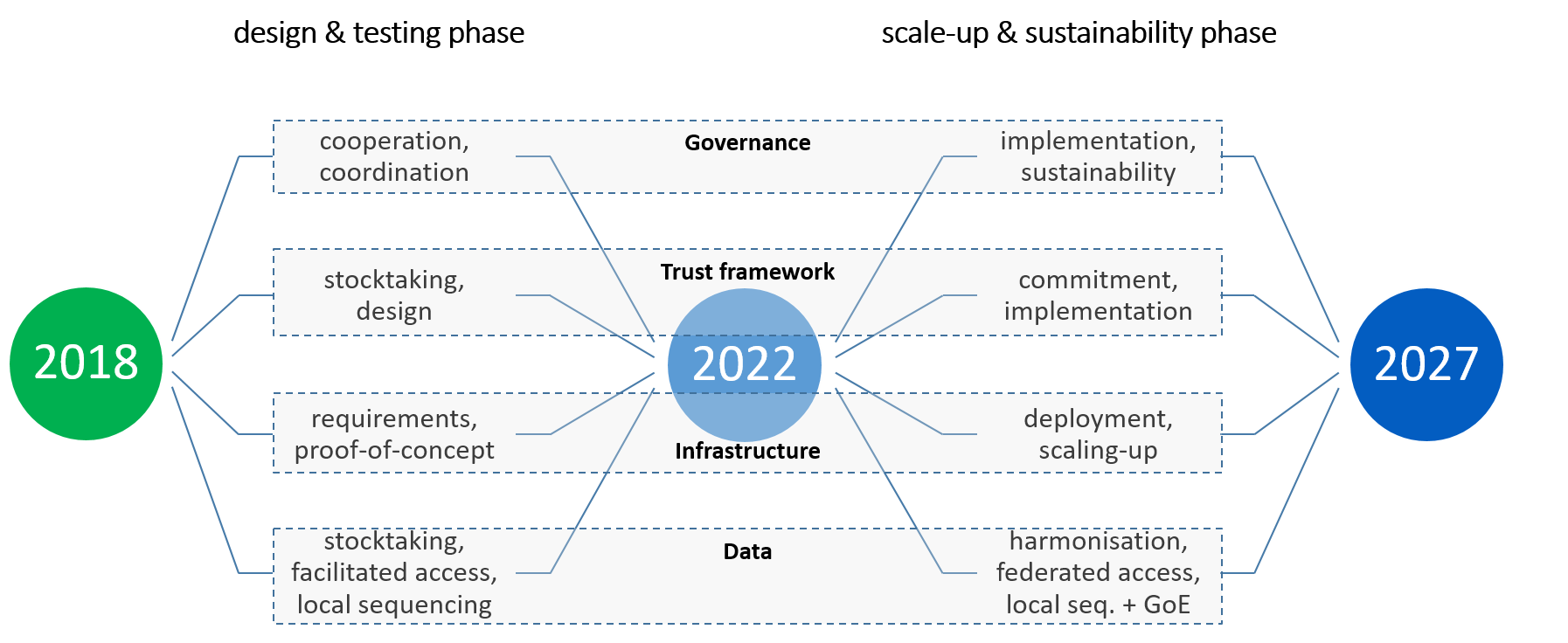In the German economy's journey to freedom from dependence on fossil fuels, A German town has launched a project to reduce energy consumption by activating smart lights and involving residents in controlling street lighting.
Since the establishment of the Millennium Development Goals, Many governance and public administration methodologies have emerged, Most notably, the citizen-centric approach, In other words, building a common reality and a sense that every citizen is concerned with designing and developing his country's policies, not just adapting to them.
With increasing population growth, urbanization and contemporary lifestyles, The need for these approaches is growing, The United Nations estimates that 55% of the world's population settles in cities. a percentage that will increase by two-thirds by 2050, This means greater challenges in the energy sector, Given the vulnerability of fossil fuel sources to world events, persistent price inflation and environmental impact, This has prompted European governments to work towards better and more efficient forms of energy use.
Because the achievement of these goals is cumulative, Or rather complementary, The savings start from the use of small lamps. That's the concept from which the local council of the small German town of Bad Hersfeld of 30,000 people started. After the Council received many demands to upgrade street lighting systems and make them more sensitive in terms of weather, traffic safety, energy saving and protection from insects and light pollution, It is no longer enough to replace old, high-consumption lighting technologies with LED or LED lamps, which are preferred options for reducing energy consumption.
In order to establish a sense of security among its residents and reduce public spending and environmental impact, The town collaborated with Deutsche Bank and Microsoft to launch a decentralized smart street lighting system. This is part of a comprehensive project worth about 800,000 euros aimed at modernizing light poles across the city.
The project included upgrading 154 poles and connecting them to sensors and AI controllers to adjust lighting based on several factors such as traffic, ambient lighting and weather conditions. The efforts also included the development of a smart application that citizens can download to their smartphones and use to control street lighting. They can adjust their settings according to their personal preferences, Such as turning off a strong light opposite the bedroom window or increasing the brightness of another that lights up a street on a dark night. With this, Each light pole can be operated individually, and link it to the control unit to report any malfunction or malfunction, And provide it in the future with other smart services.
The executive team conducted workshops to come up with a real-time machine learning algorithm so that the software that powers each light pole can understand residents' requirements, remember their preferences and apply them automatically.
For years, the city authorities have experimented with various innovations to develop street lighting. It adopted several technologies, Such as adjusting the "color temperature" between neutral white and yellow that is commonly used on public streets. With this, The degree and brightness of illumination in a public park will differ from what we might see on a busy urban street. In 2019, the city also installed sensors to monitor noise levels and pollutant levels in the air and monitor traffic flow. This is in preparation for one of the annual festivals, which lasts for a week and attracts tens of thousands of visitors.
In a similar vein, The town authorities are testing a sophisticated system that helps emergency crews respond within 10 minutes. Based on live traffic data. While this looks similar to what GPS does, It includes the feature of integrating traffic lights so that response teams can change the signal from red to green and shorten waiting time. After their passage, AI algorithms will take care of returning traffic to what it was.
This is not the first experience of smart lighting, Where it has already been used by many cities, In the Korean capital, Seoul, These columns perform several other functions such as weather monitoring and providing Internet connectivity, It also includes sockets for charging smartphones, The government plans to use them in the future to ship drones.
In Chicago, The authorities have introduced the new lighting systems to residents before they begin to be installed. To ensure that the target group in development projects is part of their implementation, Especially marginalized communities and minorities.
Perhaps this innovation of the town of Bad Hersfeld opens the door to chaos. Starting with harmful behaviors and not ending with stirring up disputes between residents of one street. Lest this challenge prevent the success of the project, The technical team added settings that prevent users from taking actions that threaten security or waste energy, During the proof-of-concept phase, The trials were limited to a limited number of participants, Each system is also equipped with typical settings to which it can return, Where the application is deactivated for ten minutes so that the user can try his option, And to prevent it from quickly switching between different degrees of brightness.
The technical team is even looking beyond this, He plans a smart app that includes a personal profile of each user's lighting preferences, To adjust his lighting where he passes. It is an aspiration that the municipality sees as unattainable. And it is possible only after years of experimentation and research and development.
While the council announces a tender for the upgrade of 2,000 light poles distributed in the rest of the town's streets, It is hoped that the effects of this technique will include cost savings, and increased street safety, the protection of wildlife and biodiversity, Continuous monitoring of environmental conditions such as temperature, noise and air quality, Collect data on human activity, traffic, mobility patterns and others.
References:
https://www.ui.city/en/news/blog-archiv/the-power-of-sustainability-in-the-palm-of-your-hands






